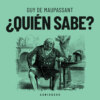Kitabı oku: «An Old New Zealander; or, Te Rauparaha, the Napoleon of the South.», sayfa 10
To secure so eminent a scion of Ngai-Tahu aristocracy would be a trophy indeed; but Te Rauparaha knew that it was no ordinary task that he was contemplating. An attack upon regular lines might easily defeat its own purpose, for a chief so sacred to the tribe as Tamaiharanui would scarcely be permitted to sacrifice himself upon the field of battle, even if his own inclinations impelled him to lead his people, a point of personal courage by no means too well established.94 Strategy must therefore be employed, and it must be strategy of the most delicate kind, for, in the naïve language of the younger Te Rauparaha, "the chief must be enticed, even as the kaka is enticed." For the scheme which was finally adopted it has been claimed that Te Rauparaha was not originally responsible, but that the idea was first conceived by a relative of his, named Hohepa Tama-i-hengia, who had been working on board a whaler in the southern latitudes, and heard the story of Te Pehi's death on the ship calling in at a bay on the coast of Otago. Hohepa, who, in his contact with the European, had lost none of that eternal thirst for revenge which marked the ancient Maori, at once besought the captain to employ his vessel in the capture of Tamaiharanui, promising a large reward from Te Rauparaha on his handing over the prisoner at Kapiti. The captain, however, was discouraged in the idea by the rest of the ship's company, who were eager to reach Queen Charlotte Sound, there to resume their whaling operations; and thus the execution of the brilliant suggestion had perforce to be suspended until the ingenious author of it himself reached Kapiti. There the daring plan was laid before the fighting chiefs of the tribe, who were readily convinced of its practicability.
Their first overtures were made to Captain Briggs, whose ship, the Dragon, was then lying at Kapiti. This seaman has, with a frankness amounting to brutality, explained that he ultimately declined their proposals, not because the enterprise was repugnant to him, but because Te Rauparaha insisted upon taking more men with him than he deemed it prudent to carry in his ship. The manner in which the captain of the Dragon was approached was diplomatic in the extreme. The chiefs explained to him that Te Pehi had been to England, and that, as a mark of gratitude for his generous treatment there, he had always been the friend of the English. Tamaiharanui, on the other hand, had killed more white men than any other chief in New Zealand, from which fact they adroitly argued that they and Captain Briggs had a mutual interest in compassing his death. Briggs seems to have been convinced that Tamaiharanui was a "monster," whose death would be a distinct benefit to society, and he unhesitatingly offered to take Te Rauparaha and two of his best men to Akaroa to effect the capture. Te Rauparaha and Te Hiko, however, stipulated for twenty men; but, as the cautious Briggs considered that "this would have given the chiefs more power in the vessel than he cared to part with," he declined further discussion. This rebuff delayed, but did not extinguish, the purpose of the chiefs. They still hoped that other captains would be more amenable to persuasion or more susceptible to reward. There was thus considerable excitement at Kapiti on a certain day towards the close of the year 1830, when a vessel was seen rounding the Taheke Point, and the cry of "A ship, a ship!" was raised from every corner of the settlement. Rauparaha immediately ordered out his canoe, and, putting off with Te Hiko and a full crew, boarded the stranger, which proved to be the British brig Elizabeth of 236 tons, commanded by Captain Stewart.95 The chiefs were fortunate in the type of man with whom they had come to negotiate. Stewart was one of the semi-buccaneer breed, who, at this period, were all too common in these waters, and whose depredations have contributed so many of the ugly pages of our country's history. Nor was this case to be an exception. Before committing himself, however, Stewart took the precaution of consulting Captain Briggs, who advised him not to undertake to carry more natives on board than he could safely control. But this counsel96 was not followed, and a bargain was eventually struck, whereby it was agreed that the captain was to carry the chiefs and their party to Whanga-roa (now Akaroa) Harbour in Banks's Peninsula, in consideration for which he was to receive fifty tons of dressed flax – valued roughly at £1,200 – immediately upon his return to Kapiti. The conclusion of this contract gave intense satisfaction to the chiefs, and according to his son, "the heart of Te Rauparaha lived in joy."
Some of the apologists for Captain Stewart have endeavoured to show that he was not made fully aware of the real intentions of the chiefs, and that, when the savage purpose of the voyage was borne in upon him, he was then powerless to avert the tragic scenes which were afterwards enacted. It has been further urged in extenuation of his crime that, when he arrived on the coast of New Zealand, he discovered to his dismay that his cargo was totally unsuitable to excite trade with the natives, and that he was, therefore, constrained, in the interests of his employers, to accept a charter against which there was no law, and which promised a rich and speedy remuneration. What measure of truth there may be in the former defence it is now difficult to determine. It is possible that events developed in a manner and to an extent that had not been contemplated by Stewart; but it must be remembered that he had discussed with due deliberation the whole project with his friend Captain Briggs, and that, if he afterwards found himself powerless to control the passions of his charterers, the blame was entirely his own for disdaining the advice of his fellow captain regarding a limitation of numbers. As to the unmarketable nature of his cargo, that specious plea is flatly disproved by the ship's manifest. So far from the goods carried being unsuitable for trade, there was scarcely anything brought in the Elizabeth for which the natives were not eagerly craving. Indeed, there is no room to doubt that, had Captain Stewart chosen to confine himself to legitimate commerce, he could have easily bartered his guns and his powder, his flints and his tobacco, for a cargo which would have given his employers an adequate return, without requiring his zeal in their behalf to outrage the feelings of humanity. Similarly, it is scarcely to be supposed that Stewart's knowledge of the law was so wide that he was aware there was no statutory decree prohibiting his entering into this unholy compact. He was clearly just as indifferent to its moral aspect as he was unaware of its legal bearing. Otherwise he would have known that, viewed from this standpoint, there was no distinction between a crime committed against a savage and that perpetrated upon a civilised being. The absence of any law regulating the conduct of individuals placed in such circumstances is no palliation for the outrage which he committed; and, so far from his being unwittingly led into an error of judgment, his treatment of Tamaiharanui after his capture dispels any supposition that he had repented of his bargain, or that he was in the least degree revolted by the excesses of the natives. Having regard to these facts, the impression conveyed by a study of the general character of the man, as revealed by his actions, is, that the purpose of the voyage would not have caused him much scruple, so long as the reward was ample and easily obtained. Howbeit, a few days after the bargain was struck, he received on board his vessel Te Rauparaha and one hundred and seventy of his followers, accompanied by five of his remaining lieutenants – Te Rangihaeata, Te Hiko, Tungia, and Tama-i-hengia, and on October 29th set sail for Banks's Peninsula.
The voyage appears to have been propitious enough, for, in due course, the vessel arrived at Whanga-roa Harbour, on the shores of which then stood the Takapuneke pa, and now nestles the sequestered town of Akaroa.97 The coming of a ship was an event much more rare at Akaroa than it was at Kapiti, and, consequently, the natives of the pa were stirred to the highest pitch of excitement, and desired to enter into immediate trade with the vessel, which they misjudged to be an honest whaler.98 Meanwhile Te Rauparaha had carefully concealed all his men beneath the hatches, and enjoined upon them the strictest seclusion; for the success of his scheme altogether depended upon the concealment of the fact that a force of natives was on board. Acting under instructions from the chief, Captain Stewart, through his interpreter, forbade any of the resident natives to board the Elizabeth until Tamaiharanui had returned; for it so happened that, at the time of the brig's arrival at Akaroa, that chief was absent from his pa, superintending the preparation of a cargo of flax which he had sold to an English captain. A message was accordingly despatched to Wairewa, urging him to come and see a pakeha who was eager to trade. It was not, however, till the eighth day that Tama arrived, and, during all that time, the Ngati-Toa warriors had been cooped up under the hatches, being permitted only a few minutes on deck under the cover of darkness. These precautions prevented any suspicion reaching the shore; and yet some doubt seems to have lurked in the minds of the resident people, for they eagerly inquired of Cowell, the interpreter, whether there were any natives on board, and were put off with the laughing assurance that such was impossible, as the vessel had just come down from Sydney. This statement was seemingly fair enough; but, if Sydney was the last port of call, how came those hutiwai burrs clinging to the clothes of some of the crew, which a keen-eyed native had just espied? Hutiwai burrs do not grow in Sydney, nor upon the broad ocean. Then the lie that came handiest was that on the way down they had called at the Bay of Islands, and the sailors had probably picked up the burrs while carousing on shore. The evasion, however palpable, was at least successful in silencing the doubts which were just growing to dangerous proportions in the minds of Tamaiharanui's people, and the incident had no influence in cooling their ardour for trade, for further messengers were shortly afterwards despatched to hasten their chief's coming. When Tamaiharanui came, he brought with him his wife, Te Whe, his sister, and his little daughter Ngaroimata,99 a name full of pathetic suggestion. He was cordially welcomed by the captain, who invited him to his cabin below with every show of courtesy and hospitality. But no sooner was the chief seated than the door opened, and, to his intense amazement, his mortal enemies, Te Rauparaha and Te Hiko, stood before him. To overpower and bind him was the work of but a few moments, and then the Ngati-Toa let loose upon him the full flood of their invective, taunting him in bitter scorn with his infantile simplicity in falling so easily into their trap. Te Hiko added insult to injury by advancing and drawing back the captive's upper lip, sneeringly remarking, "So these are the teeth which ate my father."
In all innocence of what was passing within the cabin, the followers of Tamaiharanui swarmed round the ship's side in their canoes, clamouring for admission, so that they might trade for the needful guns and casks of powder. This permission was granted to a few at a time, who, immediately they reached the deck, were conducted by the crew to the open hatchway and promptly shoved headlong into the hold, where they were secured by Te Rauparaha's men and made prisoners as easily and as simply as their chief had been. The failure of these people to return to the shore evidently did not excite any uneasiness. It was no uncommon thing for natives visiting a ship in the offing to remain for several days, or even longer, if their presence could be tolerated. Events were thus playing into the hands of Te Rauparaha more effectually even than he might have reasonably expected; and so, on the evening of the second day after the capture of Tamaiharanui, having secured all the visitors to the ship, he was now in a position to deal with those who had remained on land. Boats were accordingly got out some hours after nightfall, and a strong and well-armed party was sent ashore to attack the Takapuneke pa. Ngai-Tahu accounts of this fight would have us believe that an heroic resistance was offered to a cyclonic assault; but the circumstances render such an account most improbable. The place was not a fighting pa, and for the purposes of war was practically defenceless. The people, too, were awakened from their sleep by the tumult of the attack, and, shorn as they were of their leaders and their warriors, there was little hope of any organised defence being made. The attack therefore became a rout, and the rout a massacre; and before morning broke the people of Akaroa were either helpless captives, bound in the evil-smelling hold of a ship, fugitives flying for dear life, or lying dead amongst the smoking ruins of their ancestral home.
Having achieved a complete success, Te Rauparaha collected a quantity of human flesh for consumption on the voyage, and set sail for Kapiti, where the final scene in the tragedy was to be enacted. Tamaiharanui and his family were housed in one of the fore cabins, and apparently some degree of liberty was permitted him, for on the first night out from Akaroa,100 he, after consultation with his wife, seized a favourable opportunity to strangle his little daughter as she lay asleep, and afterwards cast the lifeless body into the sea. This extreme course he justified to his conscience as averting the eternal disgrace of her ever becoming the wife of one of his enemies. His unnatural action, however, had the effect of rousing the fury of his captors.101 Fearing that his next step would be to take his own life, and so deprive them of the legitimate fruits of their mission, they took immediate and adequate precautions by pinioning him fast in a position which caused him exquisite torture, and his sufferings they watched with intense delight. On the voyage northward high revels were kept by the natives, who, if the interpreter's testimony is to be credited, were even permitted to cook the flesh of their victims in the ship's coppers, without protest from the captain or any of his equally degenerate crew.
Upon the arrival of the Elizabeth at Kapiti, on the 11th of November, the pas were almost deserted, the majority of the people being absent in the swamps and on the hill-sides, preparing the flax which was to be Captain Stewart's payment. The news, however, soon spread that the great Ngai-Tahu chief was a captive on board, and crowds came flocking from the mainland to verify the reported triumph of their leader. The major part of the prisoners were landed on the 12th of November, and the natives now expected that Tamaiharanui would also be handed over to them at once, to be disposed of in their own fashion. But on this point Captain Stewart was obdurate, for he probably saw but little prospect of securing his flax if once the prisoner passed beyond his keeping. He therefore resisted the tribe's demands for this species of habeas corpus, and detained the chief, heaping upon him the additional pain and ignominy of keeping him in irons until he could be redeemed by the fulfilment of Te Rauparaha's promise. Either this was no simple matter, or, more likely still, his followers, having to some extent satisfied their craving for excitement and revenge, relaxed their efforts in the fields, preferring to discuss in the kaingas the strange adventures of their comrades at Akaroa. From whatever cause, there was a distinct failure on their part to complete the contract. Day after day went past, and still a residue of the flax was wanting. At the end of six weeks, Captain Stewart was persuaded that it was hopeless to wait longer, and, probably wishing himself well out of the whole business, he handed Tamaiharanui over to Te Rauparaha, and made his course with all speed to Sydney, arriving on January 14, 1831.102
The prisoner was taken on shore in Rauparaha's canoe, and, at a great feast held in honour of the occasion, was surrendered to the wives of Te Pehi to do with him as they pleased. A final appeal for life was made to his captor by Tama; but Te Rauparaha took high ground, and replied that if it was a matter that rested with himself, he would most certainly spare him, but the death of Te Pehi was a calamity which affected the whole tribe of Ngati-Toa, and hence the final decision must rest with them. About the precise time and mode103 of the unfortunate chief's death there is much doubt, for scarcely any two accounts agree, except in the central fact that Tamaiharanui subsequently met his fate at the hands of Tiaia, Te Pehi's principal widow. The most favourable view of this lady's conduct in revenging the death of her lamented husband is given us by her own tribe, who have averred that "on landing, the chief was given up to the widow of Te Pehi, who took him and his wife to her own house, giving up half to their use. They talked like friends to each other, and the widow behaved so kindly to him, that a stranger would have taken them for man and wife, rather than a doomed captive and his implacable enemy. She used even to clothe him in her finest garments and deck his head with choice feathers. This continued for about two weeks, until she had assembled her friends, or thought her victim sufficiently fat to kill.104 She then suddenly caused him to be seized and bound, with his arms stretched to a tree, and whilst he was in this position she took a long iron spear, with which she stabbed him in the jugular artery, and drank his warm blood as it gushed forth."
Harrowing as this spectacle must have been, and awful as it is to contemplate, it must be remembered that the manner of Tamaiharanui's death was not more savage than that of many another leader of men, perpetrated in Christian countries and in the name of a higher cause. By the Maori code the death of the Akaroa chief was not only justified, but necessary to appease the spirit of the departed Te Pehi, and the more humiliating his death, the more adequate the compensation to the dead. A student105 of Maori life and character, than whom perhaps none have had better opportunities of mastering Ngai-Tahu history, and who, from his calling, could scarcely be accused of callousness towards Tamaiharanui's sufferings, has given it as his mature opinion that, "base as the means adopted for his capture were, and cruel as his fate was, it is impossible to feel much pity for Tamaiharanui. His punishment was hardly more than he deserved. The treatment he received at the hands of Ngati-Toa was little more than a repetition of the cruelties which he had himself inflicted upon members of his own tribe." Possibly the knowledge that he would not have acted differently himself assisted the unhappy captive to resign himself to his fate. For, although he has been described as both cruel and cowardly, by one whose verdict it is not easy to challenge, this much must be laid to his credit: that neither the mental nor the physical torture invented for him by his barbarous enemies was sufficient to break down his rugged fortitude or to tame his defiant spirit.
When the Elizabeth reached Sydney, the circumstances attending the death of the Akaroa chief were reported to Governor Darling by Mr. Gordon Browne, and the Governor, with commendable promptitude, ordered the arrest of Stewart and proceeded to put him on his trial. The depositions were referred to the Crown Solicitor on February 17, but that official expressed doubts as to the statutory power of the colony to bring the offender to justice, it not being clear whether offences committed in New Zealand against New Zealanders were punishable under the laws of New South Wales.106 Darling was in no way disconcerted by this legal difficulty, but urged with some vehemence that the point should be tested, holding that it was "a case in which the character of the nation was implicated, and that every possible exertion should be used to bring the offenders to justice." Stewart retained Dr. Wardell, a lawyer eminent in his day, for his defence, and while the officers of the Crown were seeking to make good their ground, the delay was utilised to spirit away the witnesses whose testimony might be fatal to Stewart. Meanwhile, the Elizabeth was allowed to put to sea under another captain, and Stewart was held on bail, notwithstanding the strenuous protests of his counsel. With the witnesses out of the way, Dr. Wardell became more confident, and boldly demanded the release of his client. But the Governor could not but be influenced by the prayer of the more honourably disposed white residents of New Zealand, who expressed the fear that their "lives would be made answerable for the proceedings of their countrymen," or by the touching appeal of the natives, who came personally to plead that speedy steps might be taken by England to put a curb upon the unbridled behaviour of her degenerate sons. The curb which Darling proposed to apply was to appoint a resident representative of the colony in New Zealand, and he suggested to the Secretary of State for the Colonies that Captain Sturt107 should be employed in this capacity. The carrying out of this scheme was delayed by the recall of the Governor, and the appointment of Sir Richard Bourke as his successor, to whom Darling deemed it prudent to leave the initiation of a system which it would be his lot to administer.
All this time justice was tardily picking her way amongst the complicated meshes of the law, and it was not until the 21st of May that Stewart was called upon to face his trial. Even then the Crown Solicitor was not prepared to proceed upon the main indictment, but sought to get a conviction upon a minor offence, to which course Dr. Wardell took the strongest exception, and warmly demanded the discharge of Stewart's recognisances. The Crown justified its action on the ground that its witnesses were not forthcoming, for great remissness had been shown in letting them depart; and, notwithstanding Dr. Wardell's protest that it was unfair "to hold Stewart to bail in a sum of £2,000 for an indefinite period," the Chief Justice decided to adjourn the matter, and allow it to come up for consideration on a future day. When that day arrived, the Crown Solicitor was still unready, and applied for leave to abandon the charge of misdemeanour, and proceed upon the main information so soon as his witnesses were available. But his witnesses were the same intangible quantity that they had been ever since they had first vanished, and there was not the remotest prospect of their appearing. Dr. Wardell knew this, and bantered his learned friend upon his unfortunate predicament, in which he was compelled to "skip from a charge of murder to a misdemeanour, and then to murder back again." He earnestly pleaded the hardship imposed upon Stewart by these delays, for which he was in no way responsible, and claimed either instant dismissal or immediate trial for his client, who, he believed, or affected to believe, was the unhappy victim of circumstances.108 To all this the Crown might have justly retorted that the disability placed upon Stewart was gentleness itself compared with his own conduct towards his fettered captive. Possibly this view was influencing the Court, for it still refused to take the responsibility at that stage of discharging the prisoner, but appointed the 20th June as the day on which Dr. Wardell might make application for the discharge of Stewart's recognisances. But when, after further adjournments, that application was argued on June 30th, the Crown was unable to convince the Court that the accused man should be indefinitely detained, and the Bench, reluctantly, no doubt, announced that he must be "discharged on his own recognisances in the sum of £1,000." So ended Governor Darling's sincere endeavour to make national reparation for one of the blackest crimes which have ever dishonoured the relations of the white man with the Maori, a deed which must be counted dark even at a time when the spirit of humanity seemed to slumber. Whatever palliation the apologist may find for the rough sea captain, whose occupation and environment were not conducive to the gentler qualities, it is not to the credit of a civilised community that its public opinion was apathetic in the presence of such an atrocity as that in which Captain Stewart had steeped his hands. It is to be feared that the Governor failed to receive the support from his officers, or from the community, which a jealousy for the national honour might have demanded;109 while it is equally true that active sympathy with Stewart was largely responsible for the ease with which the witnesses were got out of the way. It was, perhaps, due to the fact that he was never brought to trial, rather than to any other cause, that no jury of Sydneyites acquitted Stewart.
The tidings of Te Rauparaha's successes in the south were rapidly filtering to the ears of his friends in the north, by the agency of the devoted messengers who were repeatedly travelling backwards to their old home. With each fresh tale of victory told by ardent tongues to wondering ears, some new hope or ambition was awakened in the breast of the Ngati-Raukawa who still lingered in their settlements round Lake Taupo. Apart from the larger migrations which from time to time came down to join Te Rauparaha, less important bands were continually being attracted by the glory of Ngati-Toa's splendid achievements. Many of these soldiers of fortune reached Otaki and Kapiti with little adventure; for there was no inclination on the part of the subdued remnant of the Ngati-Apa to risk a conflict with these fiery spirits as they pushed across the ferny hills of Rangitikei. But one small company, travelling further to the northward than was customary, came into conflict with, and met disaster at the hands of, the Whanganui people, who secured the momentary advantage of a victory. From out of this defeat, two young men, Te Puke and his brother, Te Ao, succeeded in making their way to Kapiti, where the story of their misfortune made a deep impression upon chiefs and people alike. But matters more urgent and nearer home were pressing in upon the chief, and because of lack of opportunity, rather than of desire, the day of reckoning with Whanganui must be indefinitely postponed.
The business which thus preoccupied the mind of Te Rauparaha was the need of adjusting the differences and unravelling the complications, which were daily accumulating, as the result of accretions to his forces. With the arrival of every new contingent of warriors, provision had to be made for their immediate entertainment, and for their ultimate settlement on the land, in order to leave them comfortable and contented. This their mutual jealousies made somewhat difficult, and no small measure of diplomacy was needed to avert civil ruptures, such as afterwards threatened to destroy all that unity and unquestioning devotion to his authority had accomplished. Though there was this simmering of discontent between the men of Ngati-Raukawa and Ngati-Awa, fortunately for Te Rauparaha no crisis occurred, and any ill-feeling that might lead to such an event was soon forgotten in the thrilling announcement that another attempt was about to be made to capture the great pa at Kaiapoi. This decision was, we are led to understand, arrived at somewhat hurriedly, and was largely accelerated because of a vision seen by a hoary seer of the tribe, who had interpreted the manifestation as a mandate to go forward to the attack. His mata, or prophecy, has been preserved amongst the oral treasures of Ngati-Toa, and has been freely translated as follows: —
"What is the wind?
It is north-east, it is south.
It is east in the offing, oh!
Come then, O Raha!
That you may see the fire
On the crimson flat of Kaiapohia.
By the prow of the canoe,
By the handle of the paddle,
The hold of the canoe of Maui
May be overturned to cover it.
Then pound, pound the sea!
And stir it with your paddles.
Behold my flock of curlews
Hovering over the backwater
Of that Waipara there.
The fight will be on the other side;
Embrace it, get closer and closer.
Fierce will rage the fight."
It might be supposed that, with the capture and death of Tamaiharanui, and all the carnage that had followed upon the Akaroa raid, Te Rauparaha would have felt that he had taken sufficient vengeance upon Ngai-Tahu for the slaying of Te Pehi and his comrades in arms. We are, however, assured by an authority deeply versed in the intricacies of Maori etiquette that no such limit was placed upon his actions, and that, so far from his proposal to again attack Kaiapoi being anything but strictly "correct," no alternative course would have adequately met the exigencies of the case. No sooner, therefore, was the chief's decision to obey the tohunga's call to arms publicly proclaimed, than preparatory measures on an exceptional scale were commenced with alacrity and enthusiasm. There was to be no trifling with the occasion, which, it was generally understood, would be pregnant with the fate of tribes; for Te Rauparaha had determined that as the result of this priest-ordained raid either Ngati-Toa or Ngai-Tahu would be for ever humbled in the dust. The force to be raised was to consist of seven hundred and fifty warriors, and only the pick of the men were to be taken – the Ngati-Toa, the Ngati-Raukawa and Ngati-Awa tribes contributing their quota in nearly equal proportions. The traffic in arms and ammunition had now become so lucrative at Kapiti that there was no difficulty in arming every man with a musket more or less serviceable. Food was also abundant, for so rich had been the harvest of captives that at this time, it is said, Te Rauparaha had upwards of two thousand slaves constantly employed in planting or reaping the crops, which grew abundantly on the alluvial flats along the mainland coast. The question of transport presented greater difficulty. The conveyance of so large a force across the rough waters of Cook Strait was a serious problem, as there was no adequate supply of canoes for the purpose. This perplexity was, however, solved by the decision to transport the force in sections. The first division was to be landed at the Wairau, with instructions to march over the inland track, which led through the wild and picturesque Wairau Gorge, and over the Hanmer Plains, to a rendezvous appointed for them at the mouth of the Waipara River. While this detour was being made purely in the interests of adventure, the remainder of the warriors were to embark at Kapiti, and make their way by slow stages down the coast, until they should unite with the inland party at the Waipara. Here the canoes were to be beached, and the whole force was then to march rapidly upon the doomed pa, in the hope of surprising the inhabitants and carrying the fortress by one swift and resolute stroke.











